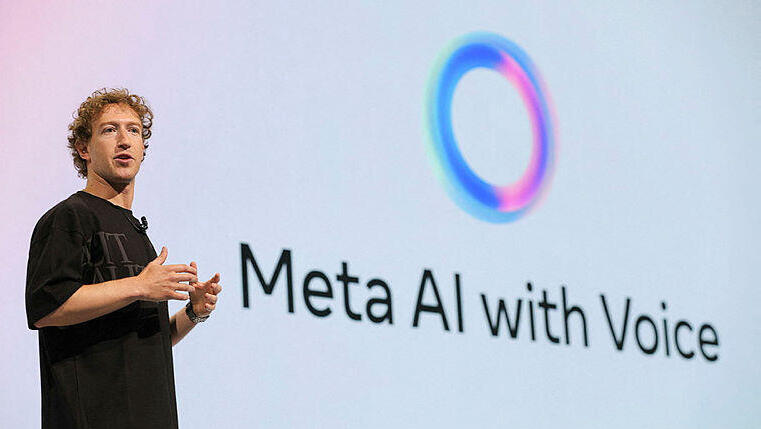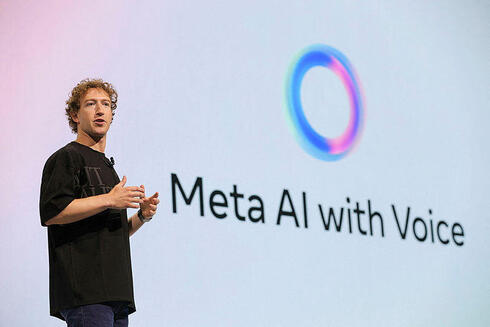
Meta’s big AI bet meets a Wall Street reality check
Zuckerberg's multi-billion investment spree and hiring war fuel doubts amid predicted weak Q2 growth.
It’s crunch time for Mark Zuckerberg as he pulls out all the stops to stay relevant in Silicon Valley’s escalating AI arms race.
The Meta CEO has ignited a billion-dollar talent war, aggressively poaching researchers from rivals such as OpenAI. But as Meta’s AI ambitions swell, so too do investor expectations, and the pressure to deliver results.
For the second quarter, Wall Street is bracing for disappointment. Meta is projected to report its slowest profit growth in two years on Wednesday, with net income expected to rise by 11.5% to $15.01 billion, while operating costs jump nearly 9%. Revenue is also forecast to grow at its slowest pace in seven quarters, up 14.7% to $44.80 billion, according to LSEG analyst estimates.
While Zuckerberg is no stranger to high-stakes bets, Meta’s AR/VR unit has burned through over $60 billion since 2020, his latest AI push carries added urgency. That’s in part due to the lukewarm performance of Meta’s Llama 4 large language model, which failed to meet expectations.
In response, Zuckerberg has doubled down, pledging hundreds of billions of dollars to build massive AI data centers. He also invested $14.3 billion for a stake in Scale AI and hired its 28-year-old billionaire CEO, Alexandr Wang, all while Meta continues to lay off employees elsewhere.
Despite the aggressive spending, investors have largely backed Zuckerberg’s pursuit of “superintelligence”, a hypothetical future where AI surpasses human intelligence in every way. Meta’s stock is up more than 20% this year.
Still, all eyes are on whether Meta will raise its full-year capital expenditure forecast, after boosting it in April. Alphabet raised the bar last week, increasing its 2024 capex by 13% to $85 billion amid rising demand for its AI-powered Google Cloud offerings.
“We view rising capex as positive, given Meta can become a one-stop shop for many marketing departments,” said Ben Barringer, head of tech research at Quilter Cheviot, which holds Meta shares.
To keep pace with lagging efforts from Google DeepMind and OpenAI, Meta last month launched a Superintelligence Lab, which operates alongside Meta AI, its flagship research division led by deep learning pioneer Yann LeCun.
Zuckerberg aims to differentiate Meta’s approach by open-sourcing its AI models and positioning superintelligence as a consumer product, integrated into devices like Ray-Ban Meta smart glasses, rather than just an enterprise tool.
Analysts say this strategy plays to Meta’s strengths, particularly its 3-billion-strong user base and improved engagement, driven by AI-enhanced content targeting.
Yet risks remain. The advertising market, Meta’s primary revenue engine, is under pressure. Some advertisers are pulling back amid renewed tariffs from President Trump, while competition from TikTok remains fierce, especially now that a U.S. ban on the Chinese-owned app seems unlikely.
Related articles:
While uncertainty has nudged some marketers toward Meta’s more established platforms, it won't shield the company from questions about its AI ambitions.
“While Meta has seen massive gains from incorporating AI into its ad platform and algorithms, its attempts to directly compete with OpenAI are proving more challenging, and costly,” said Minda Smiley, senior analyst at eMarketer.
Questions also persist around when, or if, superintelligence will ever be achieved, a timeline Zuckerberg himself admits is unknown. Even LeCun, Meta’s AI lead, is skeptical of using large language models as the path to get there.
“Meta’s AI strategy today is more cohesive than in 2023,” analysts at MoffettNathanson wrote, “but there’s still a sense that the company is searching for direction.”
